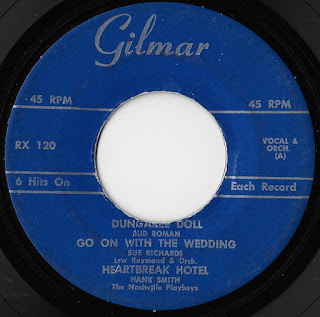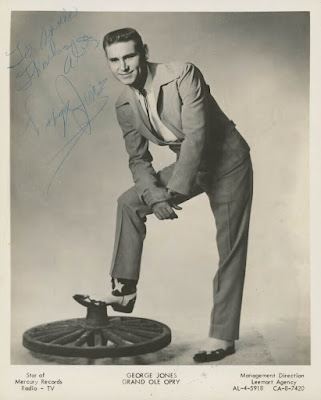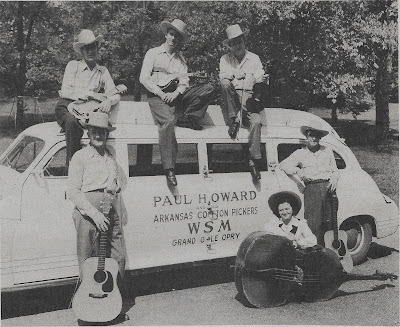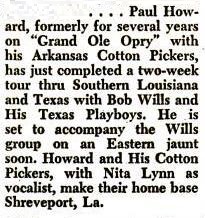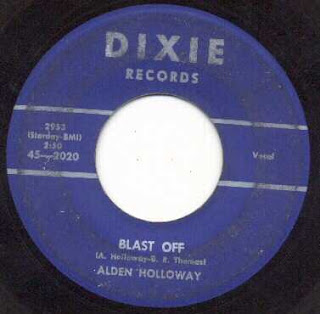When I first posted this record in 2012, I had no idea who the duo of Paul & Roy were. The internet was no help back then and it's still not today. This duo seems to be forgotten, although they recorded a slew of singles throughout the 1950s, the majority of them even for the big Mercury record label.
Paul & Roy were blind singer/guitarist Paul Boswell and mandolinist/singer Roy Pryor. They performed together for at least over a decade, starting likely in the late 1940s. They went on tour with Cowboy Copas through Canada around that time and it seems that they were quite cross-linked in the Nashville music scene. Philip Pryor, son of Roy Pryor, remembered so many now famous musicians that hung around with his father, it is astonishing the duo remained so obscure. Musicians like Benny Martin and Little Jimmy Dickens or radio personality/producer Noel Ball were only some of those names. Boswell also worked as a session musician.
Paul & Roy gained a recording contract with Mercury in 1951 and their first disc comprised "Every Dog Must Have His Day" b/w "You're All Alone, Tonite" (Mercury 6360). I once compared their sound to those of popular duo Johnnie & Jack, whose bluegrass-country-gospel melting was successful and influential as well. It is no surprise that Pryor and Boswell were friends with one of their brothers.
From their second release for Mercury, we feature their own composition "Spring of Love" from early 1952. This is another fine example of their sound and songwriting talent. Apart from writing most of their own material, Pryor also wrote or co-wrote songs performed by other artists. Country comedy duo Lonzo & Oscar used to sing Pryor's "Mama's on a Diet" at the Grand Ole Opry until they were told to omit the song as Pryor was not in the Musicians' Guild at that time. Pryor also co-wrote "I'll Keep Your Name on File" with George McCormick, who recorded it for MGM in 1957.
Paul & Roy continued to record for Mercury until 1953, releasing a total of six discs over two years. They would not record until 1959 when they made ties with Nashville entrepreneur called Mr. Pace, who was originally active in the pinball machine business, before starting out as a record label and publishing firm owner. Paul & Roy's two releases for Pace were two of the label's earliest releases but also remained their last sides.
Pryor and Boswell drifted into obscurity in the 1960s and only few seem to remember their recordings now. The British Archive of Country Music has released a CD in 2013 comprising their complete recorded output.
Mercury 6360: Every Dog Must Have His Day / You're All Alone, Tonite (1951)
Mercury 6374: Spring of Love / You’ve Been Cheating on Me, Darling (1952)
Mercury 70027: You Made the Break / The Way You Lied to Me (1952)
Mercury 70197: The Flower of Old Tennessee / I'm Lost Without You (1953)





